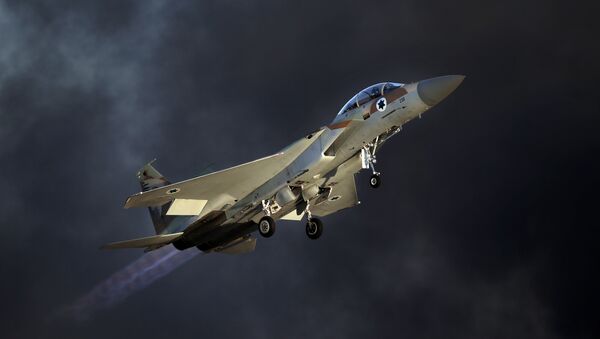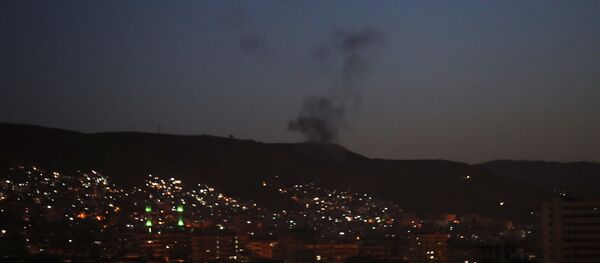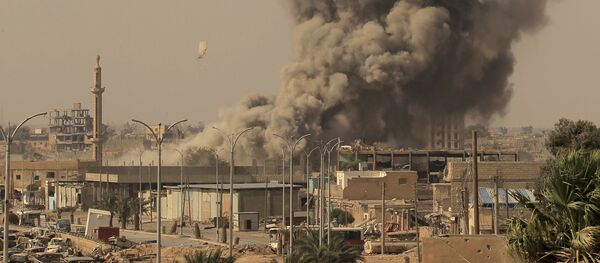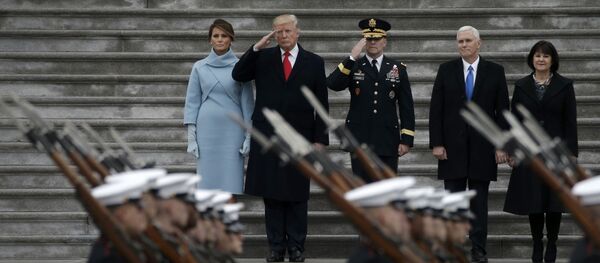Sputnik: Israel warned earlier this month that it could hit Iranian bases in Syria if tensions between Tehran and Tel Aviv were to escalate. What prompted the attack now?
Mark Heller: Tensions with Iran have been escalating largely because of an apparent ongoing Iranian effort to stockpile more advanced equipment in what is essentially a forward Iranian base in Syria and Israel's refusal to allow the Iranians to turn Syria into a base from which Israel could be attack.
Mark Heller: I think that Israel over almost the entire course of the Syrian civil war has been operating in Syrian airspace in order to prevent developments which impact very negatively on Israeli security –in particular, the transfer of advanced weaponry and what is sometimes called 'equation-changing' equipment to Hezbollah.
That I think now extends as well to the transfer of equipment into Syria itself. My understanding is that Israel considers that to be an unacceptably dangerous development.
Pro-Israel lobby in west supports backing ‘rebels’ in Syria and air strikes on Syrian govt. Syrian govt calls in support from Iran to help defend the country. Israel uses Iranian presence as pretext for further bombing of Syria. And so it goes on. #SyriaStrikes #Hama #Aleppo
— Neil Clark (@NeilClark66) 30 апреля 2018 г.
Sputnik: We've heard in recent times a lot of rhetoric in both countries being ratcheted up. What are the chances that this recent development will translate into something more serious? Or is it just continued rhetoric do you believe?
Mark Heller: I don't think anyone is looking for war, of course. But I think that the rhetoric, as well as the actions on the ground can include a risk of things spiraling out of control and escalating to a point that nobody intends to begin with.
Sputnik: What international reaction are you expecting in regard to the reported strike? What do you expect the US to say in regard to that, or Russia?
Mark Heller: Well, Israel of course wants to do two things. It wants to be closely coordinated with the United States, and is making every effort to do that I think with some considerable degree of success. Secondly, it wants to avoid a direct military confrontation with Russia, and I think thus far at least it's also been fairly successful in doing that.
Military targets in Hama & Aleppo, hit by missiles – state TV https://t.co/YmUzemBWwp
— Ian56 (@Ian56789) 30 апреля 2018 г.
Looks like another War Crime by Israel.
Israel should be sanctioned & boycotted for its Wars of Aggression & its support of al-Qaeda & ISIS terrorists in #Syriapic.twitter.com/1ZDfOnWMas
Sputnik: What's your hope for the future with regard to the region?
Mark Heller: My hope is that the totally undesirable things you're describing do not actually transpire. But I'm not sure I share a confidence that that will be the case so long as Iran continues on its present course, which is threatening to bring it into confrontation not only with Israel, but also with a large number of actors throughout the Middle East. In fact the whole region throughout the last couple of years looks like it's turning into a total confrontation between an Iranian-backed and Iranian-managed axis on the one hand and just about everybody else on the other with the possible exception of Russia.
I guess 'clash of civilizations' is perhaps too extreme a term to use here, but there is very much a broad overall tension between the Iranian-led, largely Shiite camp and just about everyone else.
The views and opinions expressed by Mark Heller are those of the expert and do not necessarily reflect those of Sputnik.




